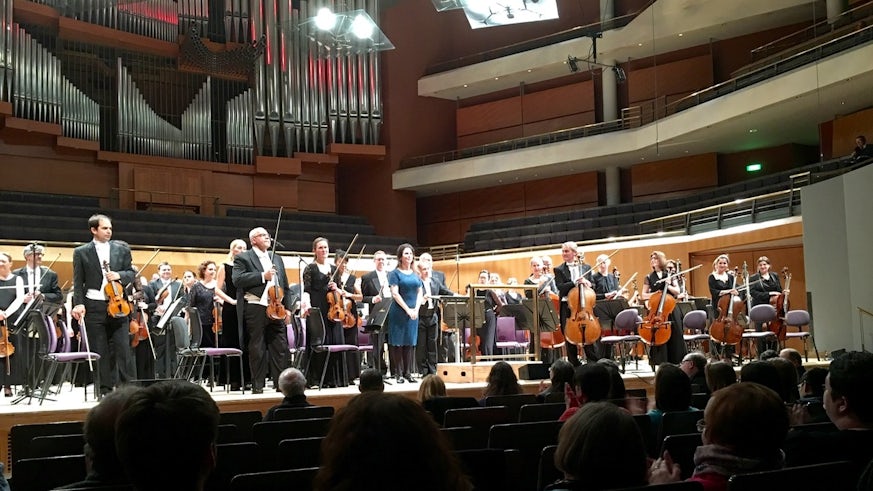Nature Symphony by Dr Arlene Sierra premieres to fantastic reviews
18 December 2017

Nature Symphony, the newest composition by Dr Arlene Sierra, recently had its world premiere with the BBC Philharmonic Orchestra.
With Ludovic Morlot conducting, the 22-minute symphony was performed at Bridgewater Hall in Manchester and later broadcast on Radio 3. Set in three movements, the symphony is the latest expression of Dr Sierra’s fascination with the natural world and our changing environment.
Several reviews celebrated the piece. The Manchester Review described it as ‘full of arresting, captivating and very mesmeric music.’ Peter Connors of Bachtrack described the piece as ‘memorable for its creation of wonderful sounds,’ while Andrew Clements of the Guardian praised the work's 'impressive economy and succession of striking orchestral ideas.'
Commissioned by the BBC Philharmonic Orchestra and BBC Radio 3, the work is in three movements that take their titles from natural locations and phenomena. The first movement, Mountain of Butterflies, refers to the site in Mexico where approximately 1 billion monarch butterflies gather together as they complete their migration. The second movement, The Black Place (after O’Keeffe) was inspired by paintings of the black hills of New Mexico by American artist Georgia O’Keeffe. The symphony culminates in a third movement, Bee Rebellion, which suggests the phenomenon of hive collapse.
This final movement was described by the Guardian as ‘music of unpredictable cycles and accumulations, with taunting wind solos, all cut short by a brassy, percussion-driven ending that offers no escape.'

Dr Sierra recently said in an interview with Classical Music magazine ‘I don’t see how anyone living today can fail to realise the urgency of what is going on with the natural world and what we human beings are doing to change things. I have a little boy now, who’s five, and I’m so conscious of how different the environment is from when I was a child. It’s a personal sense of urgency, as opposed to trying to put my walk in the woods into a piece of music.’
Dr Sierra is now working on a piano piece for the New York soloist Marilyn Nonken, and the completion of her series of new chamber scores to Maya Deren silent films from the 1940s.
Dr Sierra is a Reader in Composition at the School of Music and composer of chamber, orchestral and vocal music as well as opera, music for dance, and music for film.




